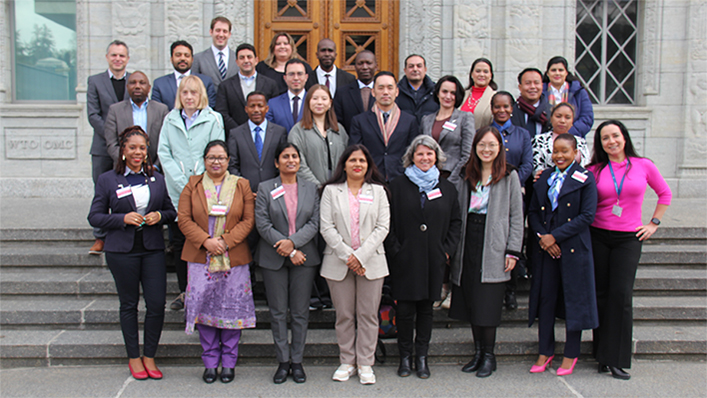
Participants exchanged information on regulatory approaches in various countries, including discussions on copyrights and the digital environment as well as incentives to develop and disseminate innovative climate change technology.
Participants were welcomed by WIPO Deputy Director General Hasan Kleib and Antony Taubman, Director of the WTO Intellectual Property, Government Procurement and Competition Division, who underscored the importance of capacity building initiatives jointly supported by both organizations. They also encouraged the participants, who are already established policymakers within their home governments, to continue peer-to-peer dialogue within and beyond the formal programme.
Speakers and participants exchanged views on capacity building, coherent policymaking and the need for developing networks of IP experts as emerging technologies and global interconnectedness continue to push the boundaries of IP law and policy. Several panels addressed the linkages of issues relating to public health, intellectual property and trade.
Hands‑on exercises and case studies helped participants to delve into these issues and to broaden their understanding of the practical implications and available options under various IP legal instruments, policies and multilateral developments. Participants welcomed dedicated sessions on AI and IP issues and challenges. These sessions fostered a discussion on how various jurisdictions are dealing with and interpreting issues related to AI and copyrights.
WIPO and WTO collaboration in action
Forming part of the collaboration between the two organizations, the course is an annual activity jointly run by the WIPO Academy and the WTO’s Intellectual Property, Government Procurement and Competition Division and Institute of Training and Technical Cooperation.
The course was originally intended to equip participants with the tools to develop and apply domestic policies that contribute to IP development processes and to help them achieve domestic policy editions. However, recent editions of the course have seen new and emerging topics being covered by experts and participants in the course.
The WTO and WIPO continue to make efforts to recalibrate the design and delivery of the programme to better suit the needs of developing and least developed countries in their ability to use IP as a public policy tool.
Share
Reach us to explore global export and import deals